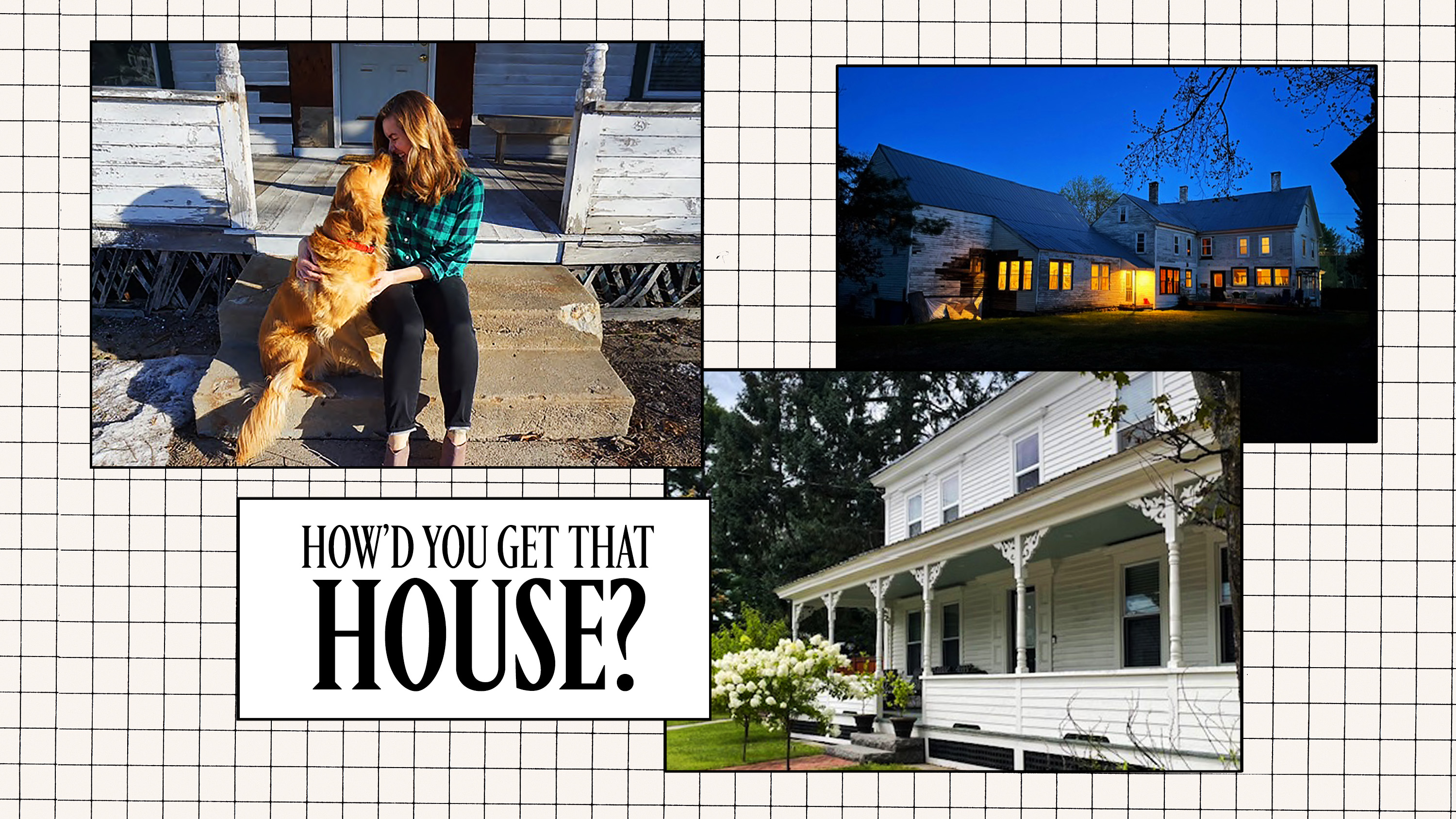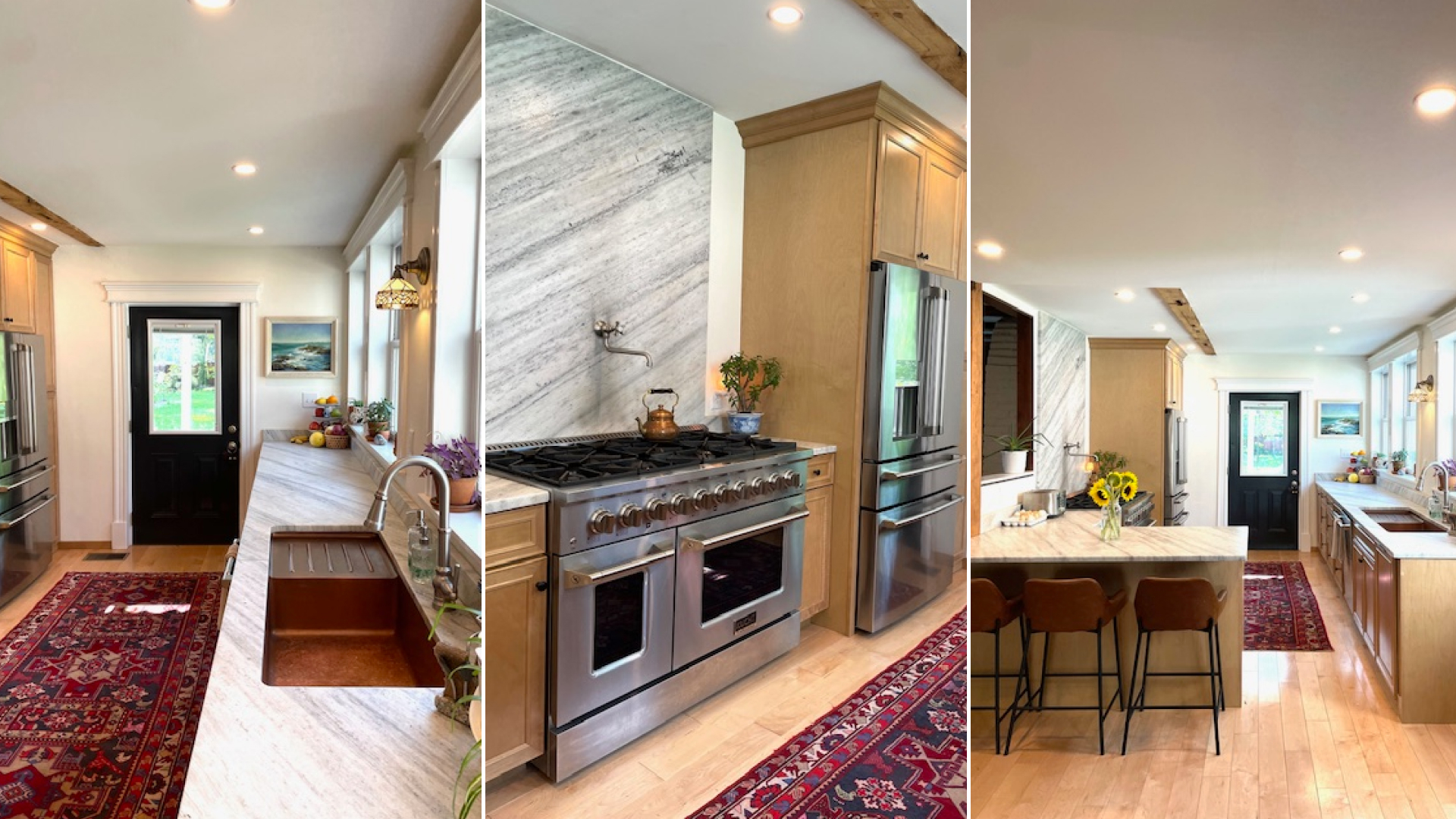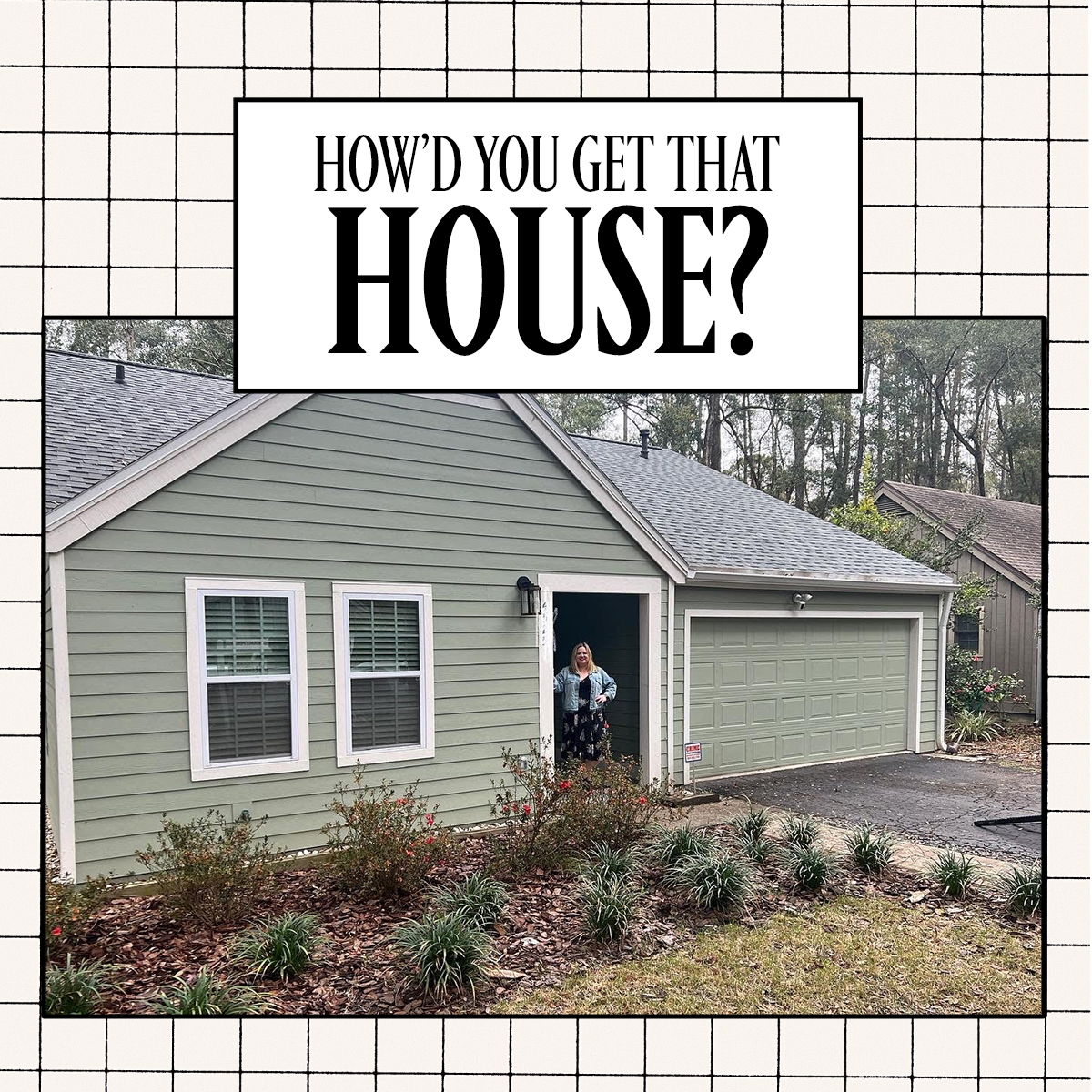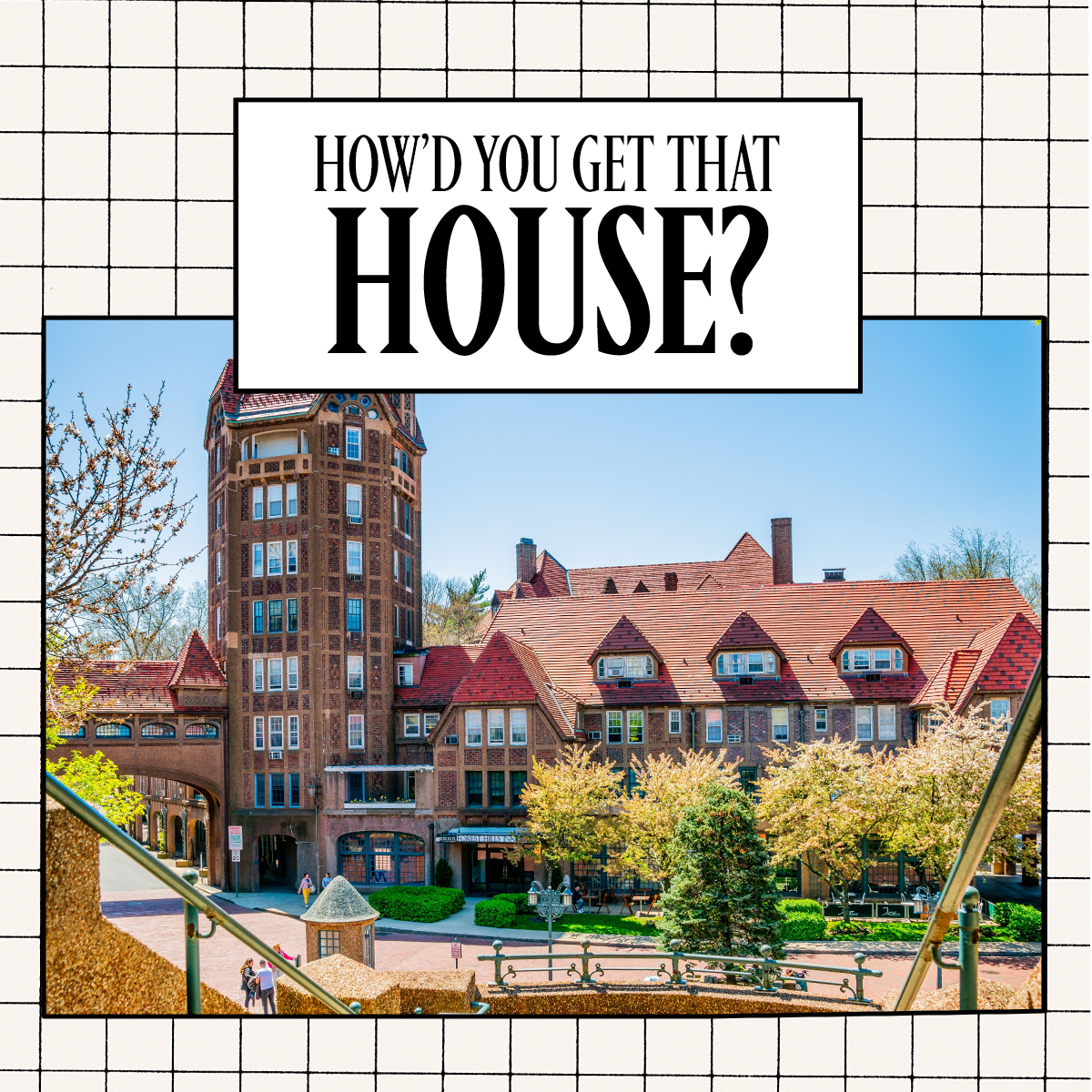This HR Executive Used an Intensive Money Course to Bounce Back From Bankruptcy and Pay All Cash for a $76,000 Farmhouse in Rural Maine
Years later, renovations are still going, but the financial freedom has made it all worth it.

How’d You Get That House? speaks to people across the country who are navigating a complicated housing market. Here, a family of five in rural Maine who considered homes in multiple states before landing on a farmhouse fixer-upper that left them mortgage-free.

Erica Craig (interviewed here), a human resource executive at a health care center who also writes fiction on the side
Annual salary: $228,000
Adam Craig, a stay-at-home dad who homeschools the family's three children and renovates their home
Annual salary: $0

A four-bedroom, two-bath, 6,000-square-foot, early-1800s farmhouse with two barns—and lots of potential—in rural Maine
Initial budget: $100,000
Actual amount spent: $76,600
Monthly mortgage: $0 (paid all cash)
Stay In The Know
Get exclusive access to fashion and beauty trends, hot-off-the-press celebrity news, and more.

The couple, along with their three children, moved from a three-bedroom, two-bath rental with 21 acres in New Jersey.
We had been renting for about five years while we saved up enough money to buy a house with cash. At that point, we were sick of renting and ready to make our move.

We began seriously looking in the spring of 2017. We bought our home a little over one year later in May of 2018. We were looking for something cheap; my husband is a talented carpenter and taught himself how to do electrical work and plumbing, so were up for renovating.
We looked in Maine and Vermont because we had family ties to those states and spent our summers there, and we also looked in Virginia and North Carolina. We had previously lived in Virginia and loved it, and there were some good prices in those states, as well.
We looked at hundreds of places online and visited about six homes in person—that was mainly due to the travel from New Jersey each time we wanted to see something.
We really enjoyed looking. I loved envisioning ourselves in the home, planning out the things we could do to the place and how we would reimagine it if it was ours. The process was a bit cumbersome, because looking for a home in a different state than you currently live is tough, but we mostly didn't mind. I think my husband was less patient and just wanted to pick something, but our price range was so low and the places we saw were in such disrepair that we really had to be critical.
We had a few musts: Most importantly, the home had to be in a place with high-speed internet for my work options. We wanted an old farmhouse style; we'd lived in 200-year-old homes before and really liked the charm of something with history. We also wanted a safe neighborhood or town.

The inside of Erica's home after the renovation of the kitchen.

Prior to buying this place we signed a contract on another place, then got spooked by the home and the work needed (bad vibes!) and backed out. Our real estate agent helped tremendously in that process and was able to get our deposit back and smooth it over so we had no loss there.
We picked our current home because of the location. We liked that it was less than an hour from my grandmother's home in Maine and our family summer home on Chebeague Island. It was one of the places that we saw with quality high-speed internet, which in rural Maine, Vermont, Virginia, and North Carolina is actually difficult to find. Many of the places we considered had to be ruled out because they only offered satellite internet.
We liked that the home was large and had some unusual features for the time it was built, like high ceilings and tons of exposed beams, two original mantels, tin ceilings in one room, and original floors in a few rooms.
We compromised on land, this home only having about one acre; we wanted more space and were used to expansive properties, but were unable to get that here. But it is in the heart of an adorable Maine village, and I was not expecting how much I would love walking to restaurants or the coffee shop, or even just having sidewalks and crosswalks and a community that I have grown to know and like.

I bought my first home alone when I was 20—a condo in New Jersey that sold it three years later very easily; I had multiple offers over asking price in the first week. My husband and I bought our second home, also in New Jersey, in 2006 before we were married. In 2008 we were severely underwater in that home, were in a bad financial situation, and completely stuck. We waited it out, but nine years later were still not above water. We had two bad mortgages and had to file bankruptcy. We lost that home after nearly a decade of never making a late payment.
That changed everything for me and we decided we never wanted to borrow money again, ever, for anything, even a house. We primarily used Dave Ramsey's program as a guide and spent the next four years paying off all our debt and saving cash for a home.
We rented at that time. We had three children by then and rented nice homes in suburban neighborhoods in Virginia, Maryland, and New Jersey, as I moved around for work often at that time. My income grew at that time with all the moves and we repurposed relocation bonuses that I received to pay down debt, opting to do all the moves on our own and bank the cash. We also sold things on Ebay and scraped money from all sorts of places to accelerate the process.

Being debt free and buying this house in cash was the singular best move of my financial life. The peace and freedom that I have knowing I own my home outright is immeasurable.
I will say, we grossly underestimated the time and expense of renovating. My husband, even with his vast knowledge, really missed the mark on how long it would take to renovate, so that has been slower than anticipated and something I wish I'd have known. We've been renovating for nearly six years and have a few more years to go, so there is ongoing cost to that, but it is completely in our control as to how and when we spend money. That has slowed other investing goals that we have, like buying rental property and a summer home.
When we bought the home, it was a complete mess—no kitchen, no mudroom, no working bathrooms, no finished spaces, more than half the house had no electrical wiring, no furnace, no fireplaces, no insulation or walls in most places. We have tackled some of the major renovations, including the kitchen, two bathrooms, four bedrooms, library, and den. When we are complete it will be close to 6,000 square feet, six bedrooms, four full bathrooms, and some extra rooms like a library. Anytime I get slogged down with renovations, or annoyed that a section is not complete, I think, well, at least I have no mortgage. That helps me feel comforted.
The road is a little busier than I might have wanted—the speed limit is 25; people go faster—but we have managed that too.
We don't have any immediate plans to move, but I also know that we won't retire here, the home is too large for just two people and there is a lot of maintenance involved in a 200-year-old home in Maine with weather and upkeep, plus the barns! But the good news is that we have options and a huge financial investment on our hands. We bought for $76,600 and believe that we could sell, even now, for over $500,000, and when our renovations are done, for even more.
This was a great move for us, even in its imperfect ways. This home has helped set my family up for larger savings and investing for retirement and the growth of assets that will take us in a very short time from bankruptcy to a million dollar net worth and I need to thank our old house for being a huge part of that. What's fun about perfection anyway.
Marie Claire is committed to celebrating the richness and scope of women's lives. We're known for our award-winning features, thoughtful essays and op-eds, deep commitment to sustainable fashion, and buzzy interviews and reviews. Reaching millions of women every month, MarieClaire.com is an internationally-recognized destination for celebrity news, fashion trends, beauty recommendations, and renowned investigative packages.
-
 Don't Compare This Tyla Coachella Costume to Britney Spears
Don't Compare This Tyla Coachella Costume to Britney SpearsThe singer says she wasn't trying to reference the Princess of Pop.
By Kelsey Stiegman
-
 King Charles and Queen Camilla Are "Greatly Moved" Over Pope Francis Granting Them a Private Audience Before His Death
King Charles and Queen Camilla Are "Greatly Moved" Over Pope Francis Granting Them a Private Audience Before His DeathThe King and Queen shared they had "heavy hearts" over the pope's death.
By Kristin Contino
-
 Hailey Bieber Shows Her Softer Side for Easter
Hailey Bieber Shows Her Softer Side for EasterOut with the moody basics, in with spring pastels.
By Halie LeSavage
-
 This Marketing VP Swapped NYC for Gainesville, Florida to Afford a $250,000 Two-Bedroom Cottage
This Marketing VP Swapped NYC for Gainesville, Florida to Afford a $250,000 Two-Bedroom Cottage"I didn't want to 'wait' until I had a partner."
By Marie Claire Editors
-
 This NYC Marketing Director Used ChatGPT and Manifestation Techniques to Purchase a $900,000 Home 20 Mins From NYC
This NYC Marketing Director Used ChatGPT and Manifestation Techniques to Purchase a $900,000 Home 20 Mins From NYCA cash gift from family for a down payment helped.
By Tanya Benedicto Klich